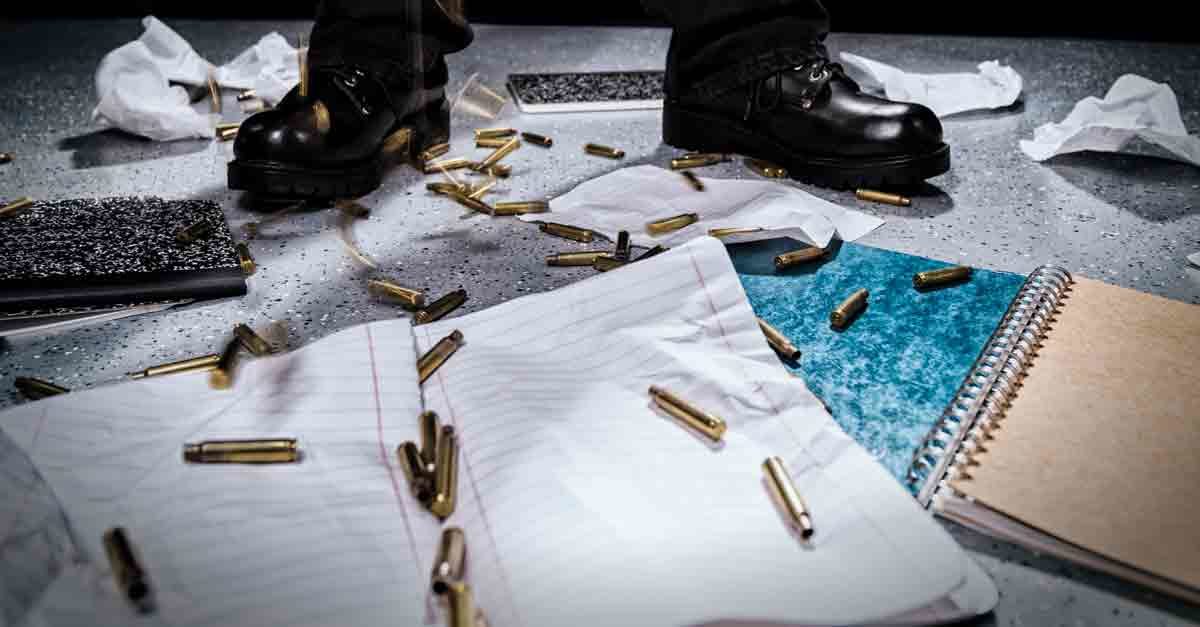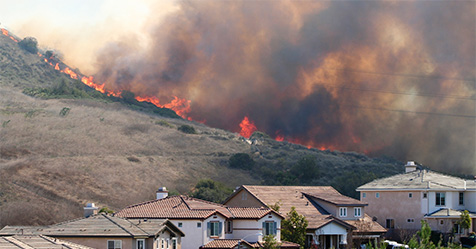As a facility manager or building custodian, you’ve probably developed a strategy to handle equipment malfunctions, such as broken heating and air conditioning systems; have implemented a fire safety plan to evacuate building residents; and have some ideas on how you’d handle flooding, lack of electrical power, and various effects from hurricanes, tornados, and other natural disasters. Have you put the same thought into what you’d do during a mass shooting in your facility?
Members of the public going about their daily business were caught in 50 active shooter incidents in 2016 through 2017, according to statistics from the U.S. Federal Bureau of Investigation (FBI). Most of these incidents occurred in places of commerce, with educational facilities coming in second and outdoor locations third. In slightly more than half of the incidents (55 percent) the perpetrators had a personal connection to the location.
Although there is no specific profile of a mass shooter, most display an avenger mindset. Whether they plan to die in the shooting or be arrested, they are looking to become infamous. Some broadcast their intentions ahead of time on Facebook or other social media platforms while others keep quiet about their plans.
Sergeant James Songer of the Dallas, TX, Police Department, an educational speaker at ISSA North America 2018, outlined three basic strategies civilians can follow during a mass shooting. His tips may help you protect yourself and save the lives of your building’s residents if an active shooter is on scene.
Be Aware
According to Songer, the first step in surviving a mass shooing is to develop the daily habit of paying attention to your surroundings. It’s easy to zone out during work with your phone or headphones and not notice a suspicious person in your vicinity. Most people will notice someone carrying a large backpack with guns sticking out of it. However, most criminals are not as obvious, and their nervousness may be the biggest clue to their intentions.
Early awareness of a suspicious person is crucial because most mass shootings are over in 30 minutes or less, with some ending in as few as six minutes, Songer said. As it typically takes three minutes for a first responder to arrive on the scene, a lot of people can be injured or killed before help arrives. However, if a citizen or group of citizens fight back, the incident can be over in as little as 90 seconds, Songer said.
Songer warned there are no guarantees his suggestions will work as planned, since every shooter is unique. However, his advice is derived from best practices from safety authorities, who have found the greatest chances of surviving a mass shooting comes down to three actions: run, hide, and fight.
Get Away
Your first option should always be to get away from situation if you can. “You should always try leaving first, even if others discourage you or decide to stay,” Songer said. “Leave your belongings and get out.”
As leaders, building managers have the capacity to encourage all residents to leave the facility immediately. Consider drills in which residents practice quick evacuations. Stress that simply exiting the building is not enough.
“Don’t stop once you leave the building. Get as far away as you can,” Songer said. “Run, run, then run some more.”
Take Cover
If you determine you cannot leave safely—perhaps you’re trapped in a room while a gunman roams the hall—then hiding may be your best defense for the moment. “Turn out the lights, lock the doors, and silence your phone,” Songer advised. “Gunmen will check doors and if they find them locked, they will most likely move on.”
If the door doesn’t have a lock, barricade it with a heavy object, then find a hiding a spot, away from windows. “Go underneath a desk or behind an object and remain very quiet,” Songer said.
Don’t get too elaborate with your hiding spot, such as barricading yourself behind large boxes or furniture. Choose a place that puts you out of plain view yet allows you to escape quickly without obstructions. Strive for cover—such as crouching behind a concrete wall, a metal desk, or a car—rather than concealment. “Don’t go under a chair and place another chair in front of you, like you’re playing hide and seek,” Songer advised. “You won’t be able to escape your hiding place quickly and a bullet can go through the chair.”
If voices identifying themselves as the police call out and ask for you leave a locked room, stay put. “It may not be the police after all,” Songer said.
Fight Back
If running and hiding are not good options, prepare to fight. Realize that the situation may not go as planned but commit to taking action rather than waiting passively or begging the gunman not to harm you.
“When people have made up their mind to kill as many people in as little time possible, nothing you say can defuse them,” Songer said. “Doing nothing is not an option.”
Don’t let the lack of a traditional weapon stop from fighting. Grab a pen or keys and jab them in the assailant’s eyes, nose, or throat.
A group of people have a good chance of stopping the assailant if they all charge him at once and try to overpower him. If you can position yourself near him while he is holding a gun, reach your arms through his outstretched arms, placing one hand on top of his hands and the other on the bottom. Then you can move his hands down so he’s shooting at the floor.
If the assailant drops his gun, pick it up and shoot him in the head or the legs. “Don’t exit the room holding the gun; police may mistake you for a gunman,” Songer said.
Follow Directions
When police arrive on the scene, they will arrive in multiple teams holding long guns, Songer said. They will proceed to the scene of the shooting and pursue the gunman until the situation is neutralized. As the scene may be chaotic, don’t do anything that can be seen as aggressive to the police.
“Keep your arms and hands raised and follow directions for evacuating without stopping to look around at the scene,” Songer advised.
Prepare for the Unthinkable
Although you probably won’t be able to 100 percent predict if and when someone will carry out a mass attack at your facility, sometimes there are clues.
Pay attention to troubling social media from your employees, especially those who have been fired and may be seeking revenge. Songer advised contacting the police if you hear of threats from a potentially revengeful former employee. “You can hire a security agency or an off-duty police officer to guard the facility until the situation cools off,” he said.
For more information on tools and resources to help you prepare and respond to an active shooter incident at your facility, visit the U.S. Department of Homeland Security website at www.dhs.gov/active-shooter-preparedness.




